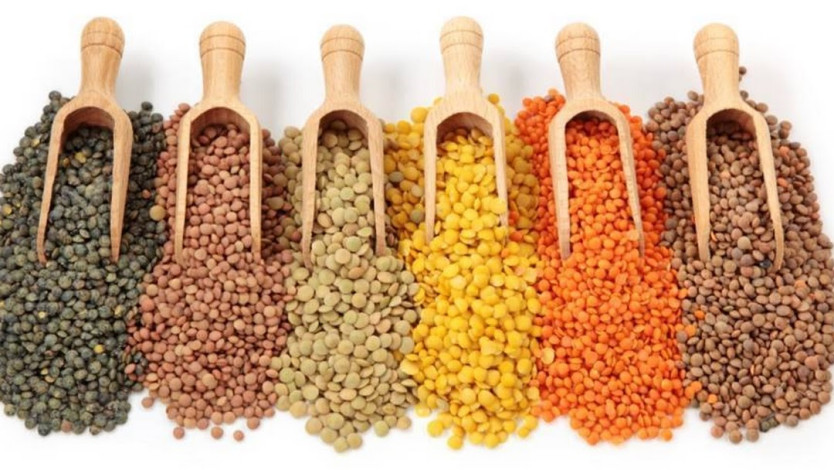
File Photo
The price of pulses is increasing due to the increase in
import costs. Meanwhile, prices of soybean, sugar and OMS flour have also
increased. The pressure on common people is increasing.
The price of everyday products in the market does not want
to stop. The prices of some consumer goods are constantly increasing. This time
the price of almost all kinds of pulses has increased. In the last week,
the price of various pulses has increased by Tk 5 to Tk 10 per kg in the retail
market. When low-income people are struggling to buy fish and meat, this
increase in the price of pulses will further increase their household expenses.
Information about the increase in the price of pulses was
obtained by visiting Moghbazar, New Market Raw Market and Kanthal Bagan Market
in the capital. Analysis of the market price list of the government agency
Trading Corporation of Bangladesh (TCB) also found the same picture.
Lentils are the most sold in the market. Three varieties of
this dal are available in the country. According to TCB, the prices of large,
medium and small grain lentils have increased by 8, 9 and 8 percent per kg
respectively in the last one month. And in the last week, the price of
large and medium grain lentils has increased by Tk 5 per kg. And small grain
lentils increased by 10 taka.
According to TCB, large grain lentils are now being sold at
Tk 100 to Tk 110 per kg and medium grain lentils at Tk 120 to Tk 130 per kg.
The price of small grain lentils is kept at Tk 130 to Tk 145.
Bulk lentils are available in the market as well as packaged
lentils in supermarkets or big stores. Packaged lentils of different brands are
being sold at Tk 150 to Tk 170 per kg.
Importers say the price of pulses has increased in the market due to the increase in the cost of opening letters of credit (LC). Now if the price increases again, it has increased because of the dollar price. But it has no chance of destabilizing the market.
Zahid Hossain, Joint General Secretary of Bangladesh Dal
Traders Association said, "Prices are being adjusted in the market due to
high import costs. Now the dollar market is somewhat stable, but the banks are
opening loans with a lot of scrutinies. If we come out of this strictness in daily life, it will be convenient for the traders to continue the import.
Among other pulses in the retail market, peas are being sold
at Tk 90 to Tk 95 per kg depending on the standard. The price of this dal has
increased by Tk 5 per kg in the last month. The price of khesari dal has
also increased by Tk 5 to Tk 7 per kg. A kg of this dal is now 85 to 90 taka.
Mashkalai known as 'Shaukhin Dal' is now being sold at Tk
160 per kg. Chickpeas are being sold for around 100 rupees. Recently, these two
pulses have increased by Tk 5 to Tk 10 per kg.
However, the price of mung bean and anchor dal known as dal
of low-income people has not increased in the last few days. Mung beans are
being sold at Tk 90 to 140 per kg and anchor dal at Tk 65 to Tk 75 per kg.
According to the calculations of the government agency TCB, the
price of mung dal has increased by 10 percent in the last year. Cheapest
pulse anchor in the market. Its price has increased by 50 percent in a year.
These days look like boot dals and are imported and released in the market.
This dal is very popular for breakfast in hotels and restaurants. Apart from
this, onion and purple gram flour are made from anchor dal.
When the prices of daily commodities like pulses increase,
the suffering of common people increases, Newmarket bookseller Anarul Islam
said, "Our income is limited. There is no situation like eating fish and
meat every day. The cost of eating pulses and rice is not low. Even if you eat
a meal with dal-rice and alubharta in a restaurant, it costs 50 takas.
Meanwhile, the import of pulses has decreased despite the increase
in market prices. From July to September of the current financial year 2022-23,
wheat, sugar, lentil and pea, among the four major commodities, the import of
peas has decreased the most. Imports of the product have fallen by about 45
percent.
In the first three months of the last fiscal year 2021-22, 1
lakh 51 thousand tons of peas were imported. 82 thousand tons have been
imported this year. At the same time, the import of lentils also fell by 31
percent. In the first three months of the last financial year, when 1.25 lakh
tonnes were imported, this time it was 86 a thousand tonnes in the same period.
13-14 lakh tonnes of pulses have to be imported annually into the country due to a lack of production as per demand.
Source:
Online/SZK
Comment Now